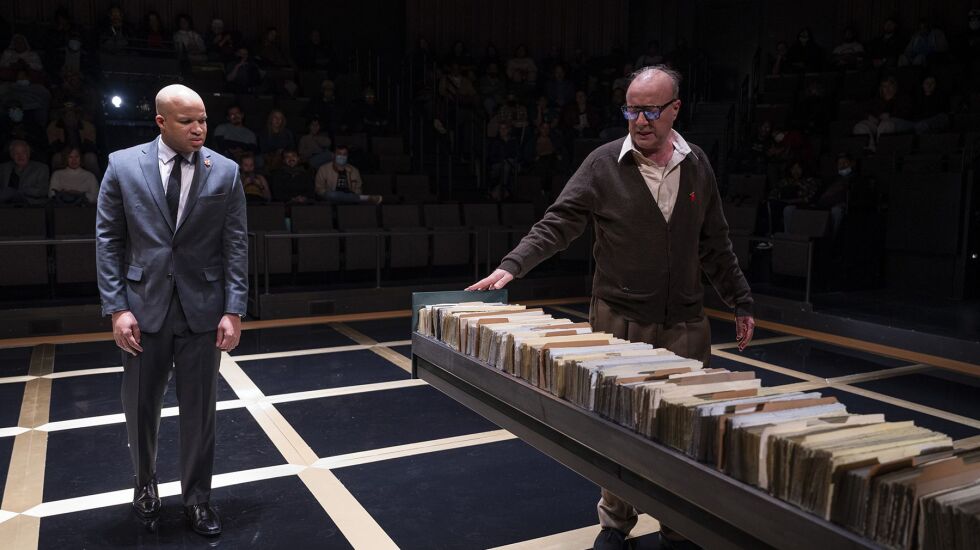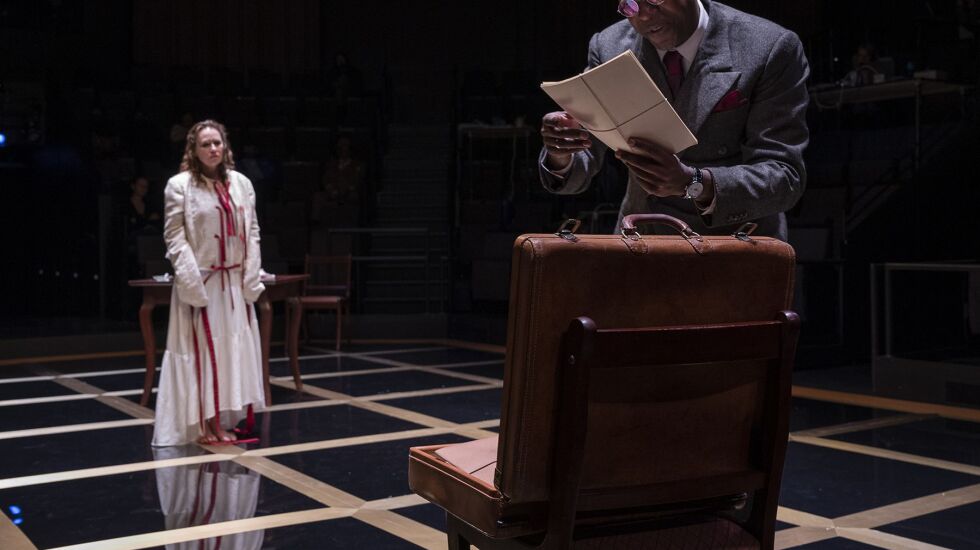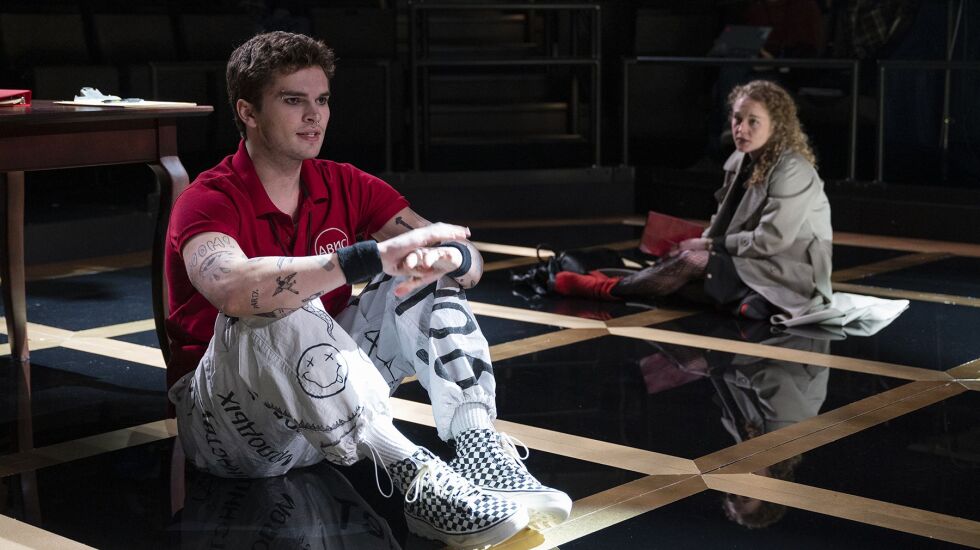
The last time Steppenwolf Theatre presented a play by ensemble member Rajiv Joseph, it was the world premiere of the light and breezy “King James,” a small story about two basketball-loving bros who bond over LeBron.
Now the company is staging Joseph’s “Describe the Night,” first produced in New York in 2017. Suggesting that the plays are different is a laughable understatement.
“Describe the Night” is a dense, epic-sized work about the clashes among truth, art and power. It’s a fanciful mishmash of history, mythmaking, conspiracy theories, artful fiction and propaganda, told with a stylized mix of earnestness and humor.
But despite the immediacy of its themes — how fact becomes fiction and vice versa — the play feels oddly dusty.
Part of this quality stems from the work’s dealing in obscurities, at least to American audiences. Quick, what do you know about the Russian writer Isaac Babel (killed in 1940 for his failures to follow Stalin’s Soviet realism), the Polish-Soviet conflict following World War I, or the plane crash near Smolensk, Russia, in 2010 that killed the Polish president and spurred conspiracy theories to this day?
The work proceeds non-linearly. A contemporary-ish figure (Glenn Davis) in a sound booth that emerges from the floor reads from official historical records, and we are then taken to 1920, where we meet Isaac Babel (James Vincent Meredith), at the time covering the Soviet-Polish conflict as a journalist. He strikes up a friendship with a military figure named Nikolai (Yasen Peyankov). Babel reveals that he keeps a diary of personal reflections, displaying a red journal. They both agree that these “reflections” are not facts. Babel calls them stories. Nikolai calls them lies.

We then soon meet another journalist named Mariya (Caroline Neff). It’s 2010, and she has just witnessed the plane crash in Smolensk and the beating of a journalist friend attempting to learn more. She seeks to escape the area, and as she tries to rent a car, she befriends another unwitting witness Feliks (impressive newcomer James Cain). Feliks gives her a red journal (follow the story of that journal!), which was handed to him by a woman who initially survived the crash.
As we move back and forth in time, we follow Isaac and Nikolai, Nikolai’s future-predicting wife Yevgenia (Sally Murphy), her granddaughter Urzula (Charence Higgins), and ultimately Davis’ mysterious KGB agent, who exits that secretive below-ground sound booth and ascends to power in a creeping and semi-comical Putin origin story.
In a bit of artistic wish fulfillment, the most entertaining scenes in what is an overlong show at nearly three hours involve Davis’ character being mildly humiliated by the women in the play, one scene involving a wildly outlandish meal and the other a game of who will get frightened first.

On the one hand, I found Joseph’s genuinely impressive weaving of story threads together to be quite satisfying, particularly as the last pieces of his surreal jigsaw puzzle fit perfectly in place. At the same time, this comes off as a decidedly esoteric piece of work, cool to the touch, and even perhaps tonally off at a moment when Russian and American tensions rise over Putin’s ongoing bombardment of Ukraine. Clearly, “Describe the Night” was written well before the war, at a time when perhaps it made sense to use Russian’s famed propaganda machine as a potential touchstone for America’s own battles with the truth. But produced now, there’s just a touch of unintentional, dismissive smugness that comes across in its mocking of a man killing thousands.
Director Austin Pendleton’s production provides a beautifully elegant spareness and an admirable fluency as the work moves from apparent realism to the more fantastical. I do wonder if a proscenium stage, rather than Steppenwolf’s new -in-the-round theater, would have allowed set designer Collette Pollard to provide more wonderfully evocative images like the amusing extension of a file drawer to ridiculous proportions.
A couple of the performances deliver a precision that lifts the entertainment level in what can be dry stuff. Peyankov understands Soviet bureaucracy-speak so well that he generates laughter just for his ace timing of otherwise unfunny lines. And Neff manages to turn an entire scene on its head with the silent crossing of her legs at a moment of epiphany.







